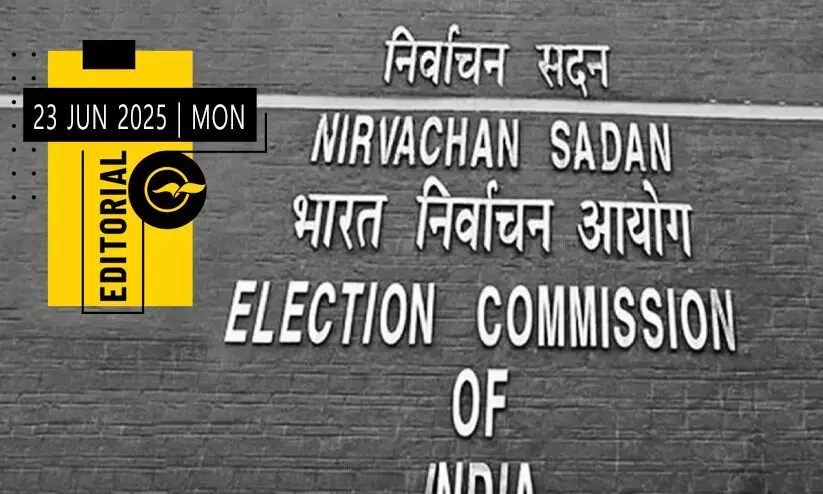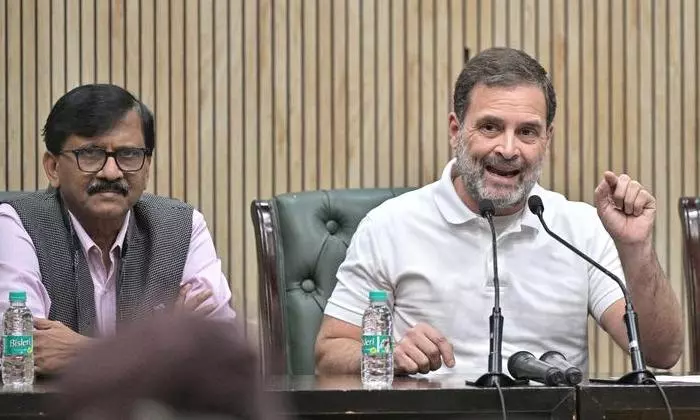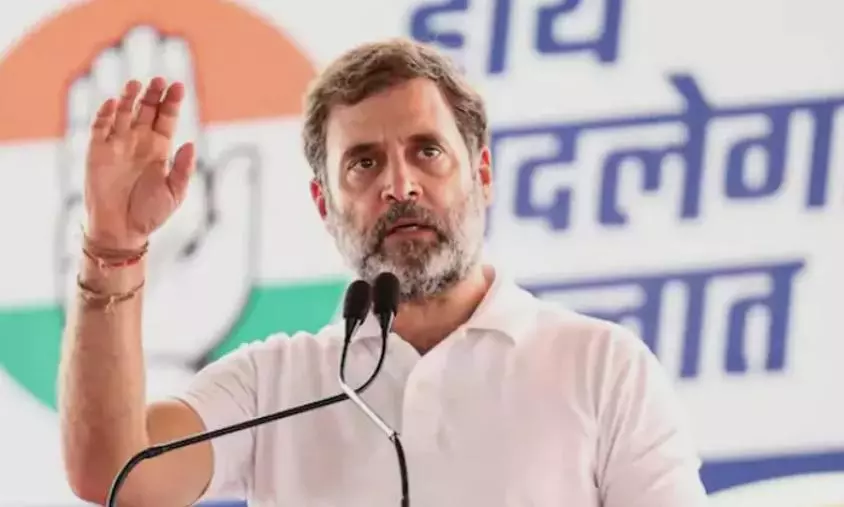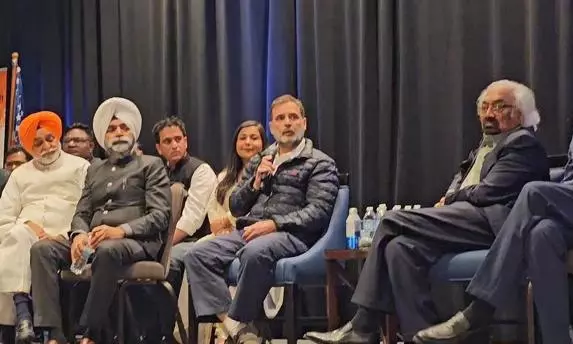
Election Commission destroying its own credibility
text_fieldsThe Election Commission's decision to destroy the video footage and photographs collected by election officials from polling stations 45 days after the declaration of results is suspicious and unacceptable. Free and credible elections are the essence of democracy. Transparency is essential for its credibility. There are still many loopholes for interference and manipulation at various stages of the election. Therefore, transparency is an indispensable and uncompromisable condition for fair elections. Since the appointment of the Election Commission is already in the hands of the ruling dispensation, there must be transparency that can convince the opposition as well. Otherwise, the elections will be nothing but an expensive farce. The 2023 amendment to the Election Commission Act is not only a violation of the Supreme Court's directive but also one that jeopardises the integrity and credibility of the Commission. With this, transparency in the functioning of the Commission has become paramount. But unfortunately, the subsequent moves of the Commission have not only not increased transparency, but have even destroyed what little of it was left. The new decision to limit the retention of video footage to 45 days from three months to a year is a cause for concern. When we look at its background, we have to say that the allegation of 'collusion' raised by the Leader of the Opposition in the Lok Sabha, Rahul Gandhi, is not unfounded.
When a complaint was made about rigging in the Haryana elections, a voter approached the Commission for documents, including CCTV footage. The Commission rejected it. The complainant filed a petition in the Delhi High Court. The court ordered that the documents be given to the complainant. However, instead of complying with the court's order, what the Commission did was to take swift action to legally block it. The Commission approached the Law Ministry to amend the law; the Law Ministry prepared the amendment in a hurry; the draft was approved, and the amendment was passed - all in a single day; the notification was issued after 10 pm. The Commission's reason for destroying the visual records in a month and a half is neither logical nor convincing to the people. It is avowedly to protect privacy. Issues such as voter identification are not trivial. But what privacy issue can there be beyond that if it does not exist for a month and a half? The arguments that the footage will be misused, that troublemakers will cause confusion, etc., are also applicable to the first 45 days. Another argument is that the video footage is being taken only for the Commission's own purposes. What more important function does the Commission have than protecting the free and transparent nature of the elections? Since the appointment of the Commission is under the control of the Union government, the misuse of footage can also lead to the 'collusion' that Rahul Gandhi pointed out. The solution is to maintain transparency at all costs. The concern about privacy is real. What is needed is to ensure 'data security' in such a way that it does not happen not for 45 days, but even for a single day. If does exist (assuming it does), how can it suddenly disappear after 45 days?
In short, the arguments of the Election Commission are frivolous and unconvincing. While the practice of storing CCTV footage for three months to a year is in place, the issues raised by the Commission have not arisen. What happened was that the footage was requested to ensure that there was no fraud in the election, and the High Court directed that it be provided. The reduction in the retention period of the footage is a continuation of the agile moves made by the Commission to prevent that. The voter registration list, voting records, and CCTV footage are documents in the hands of the Commission that dispel the doubts raised about the election in a way that the people can understand. Doubts have been raised in all this. The serious doubts raised about the Maharashtra and Haryana elections remain as such. In that context, the Commission, which should have explained the facts to the people clearly and transparently, is saying that the documents are for its own confidential use. This is a mockery of elections, citizens and democracy.















